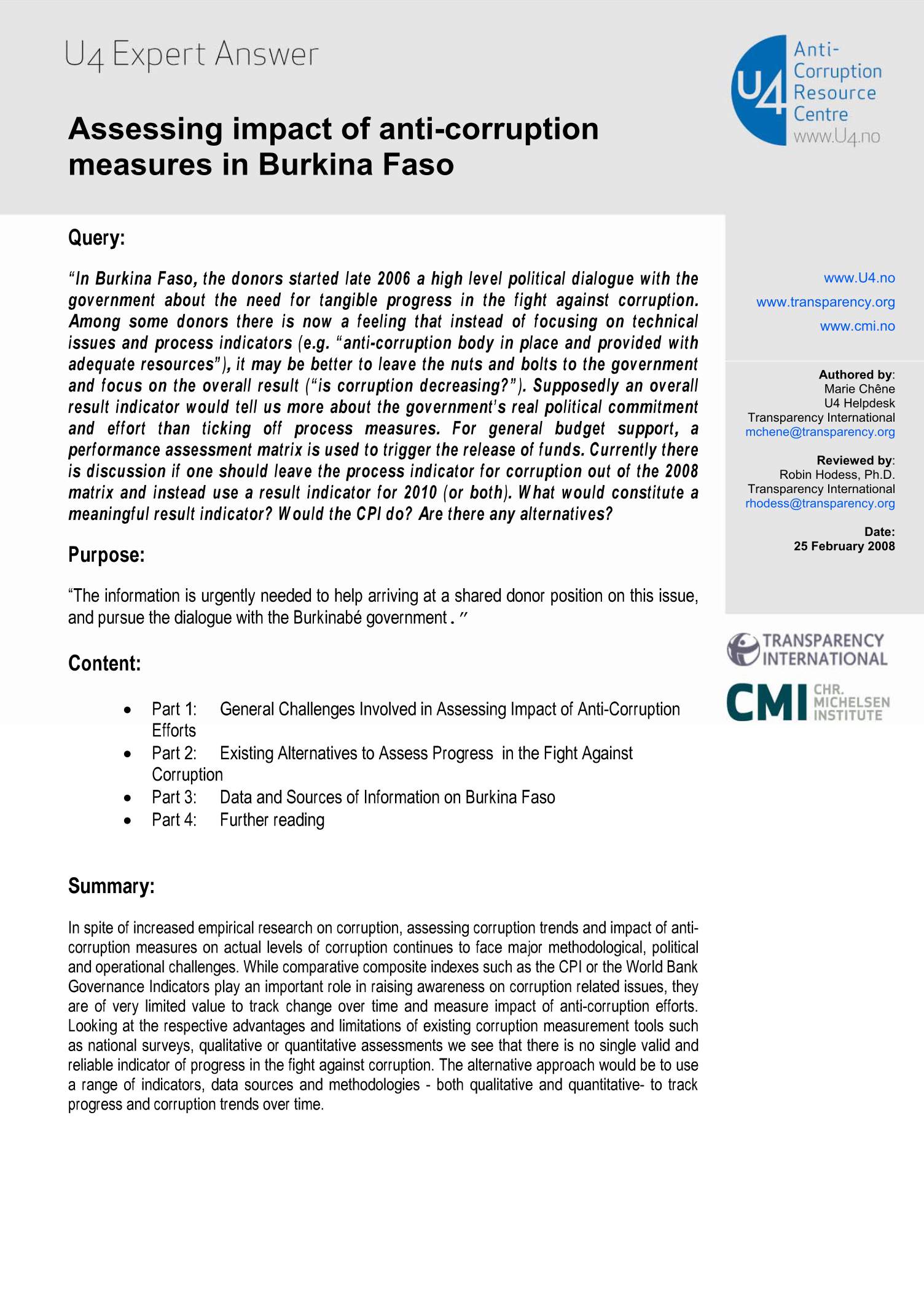U4 Helpdesk Answer
Assessing impact of anti-corruption measures in Burkina Faso
In spite of increased empirical research on corruption, assessing corruption trends and impact of anti-corruption measures on actual levels of corruption continues to face major methodological, political and operational challenges. While comparative composite indexes such as the CPI or the World Bank Governance Indicators play an important role in raising awareness on corruption related issues, they are of very limited value to track change over time and measure the impact of anti-corruption efforts. Looking at the respective advantages and limitations of alternative existing corruption measurement tools such as national surveys, qualitative or quantitative assessments show that there is no single valid and reliable indicator of progress in the fight against corruption. The alternative approach would be to use a range of indicators, data sources and methodologies - both qualitative and quantitative- to track progress and corruption trends over time.

Cite this publication
(2008) Assessing impact of anti-corruption measures in Burkina Faso. Bergen: U4 Anti-Corruption Resource Centre, Chr. Michelsen Institute (U4 Helpdesk Answer null)
Disclaimer
All views in this text are the author(s)’, and may differ from the U4 partner agencies’ policies.
This work is licenced under a Creative Commons Attribution-NonCommercial-NoDerivatives 4.0 International licence (CC BY-NC-ND 4.0)